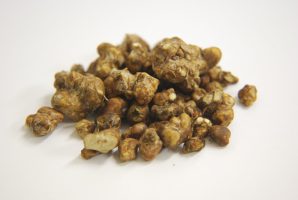What are the effects of the drug truffles on my body and brain?
What are the effects of the drug truffles on my body and brain?

Magic truffles (which contain psilocybin) affect both your body and brain in profound ways. The active compound psilocybin is converted in your body into psilocin, which stimulates the 5-HT2a serotonin receptors in your brain. This leads to the well-known psychedelic effects such as visual hallucinations, time distortion, emotional deepening, and spiritual insights.
Effects on the Brain
Psilocin alters brain activity by temporarily suppressing the Default Mode Network (DMN) — the part of the brain involved in rumination and self-referencing. As a result:
-
you live more in the present moment,
-
anxious or negative thought patterns fade,
-
there's room for creativity and deep insights.
At the same time, levels of BDNF (Brain-Derived Neurotrophic Factor) increase, which promotes new neural connections. This explains why many people experience improved learning, memory, and emotional resilience after a session.
Effects on the Body
Physically, psilocybin is generally gentle, but at higher doses it may cause temporary nausea, muscle tremors, or increased heart rate. Some users feel warmth in the head and chest, deep relaxation, or euphoria — especially when truffles are combined with natural MAO inhibitors like blue lotus or passionflower.
The combined serotonergic and dopaminergic effects can induce strong feelings of connectedness, love, and inner peace.
Contraindications
Psilocybin is not suitable for people with a history of psychosis, borderline personality disorder, schizophrenia, or certain physical conditions such as heart issues or epilepsy. Medications like SSRIs, benzodiazepines, or MAO inhibitors can either block the effects or cause dangerous interactions.
To find out whether psychedelic therapy is safe and suitable for you, you can fill in the Triptherapy intake form. You’ll receive personal advice on dosage, safety, and the best trip level for your goals.